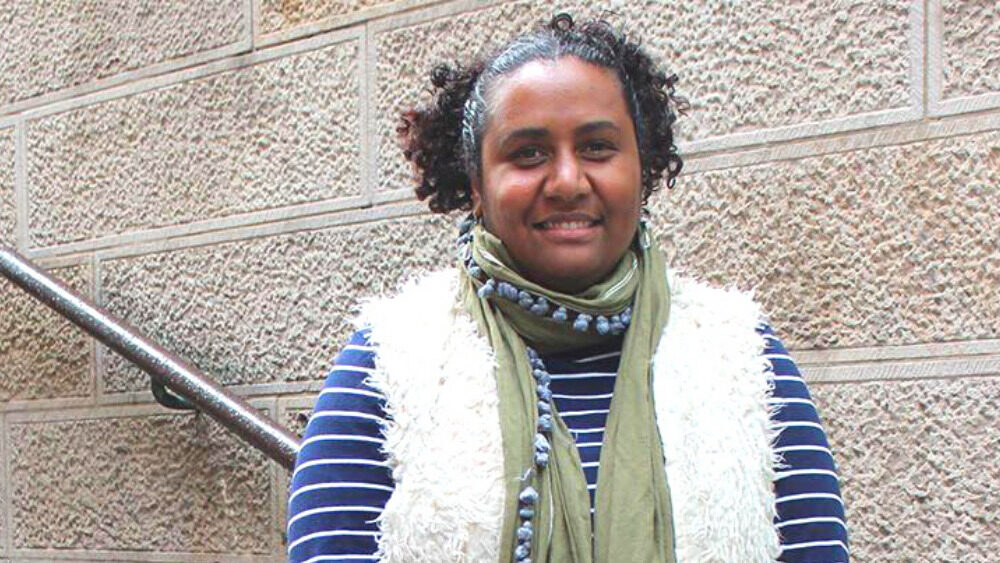As the great-granddaughter of a slave, I have found the recent conversation over slavery’s existence in Australia both heartbreaking and heroic.
In all Pacific Island countries ‘Blackbirding’ is documented, taught and remembered. All countries except for Australia, that is. In Australia, the dismissal of slavery is a fallacy that continues and apparently still needs to be fact-checked.
Rev speaks from grave: confirms Australia's history of slavery
More on Black Lives Matter, personal stories and more
View from the Southern Baptists: Black lives matter
As a descendent of Australian slaves, I’m grateful for white missionaries
My great-grandfather was 14 years old when he was stolen from his native lands, Ambyrm Island in Vanuatu. He was ‘registered’ as a ‘cabin boy’ and worked as an indentured labourer in South East Queensland.
A historian for the Queensland Museum, Imelda Miller, explaining the conditions of the Islanders working under the Queensland Master and Servants Act 1861, has written, “Islanders were made to sign three year work contracts. Many could not read and a signature was a fingerprint. While white labourers earned £30 each year, Islanders were paid in weekly rations, with their wage of only £6 per year paid at the end of the contract. The Queensland sugar industry was literally built on the backs of South Sea Islanders. Men, women and children had to work long hours and in harsh conditions akin to slavery.”
‘Blackbirding’ is a well-documented term that describes the practice luring, tricking and kidnapping Pacific Islanders.
This was the practice known as ‘Blackbirding’ that began in Australia in 1863. ‘Blackbirding’ is a well-documented term that describes the practice of luring, tricking and kidnapping Pacific Islanders.
In total, over 60,000 Pacific Islanders were either forced, coerced or deceived into leaving their native lands and shipped to the Australian shores.
The Abolition of the Slave Trade Act in 1807 had made slave trading illegal within the British Empire. Yet, in Australia, slavery continued well into the 1900s with Australian colonists and pastoralists adopting an indentured system as a way to contractually “register” labourers to work for the colonies and sugar industry in slave-like conditions.
Here in Australia, my great-grandfather married a beautiful Aboriginal woman from the Kabi Kabi nation and together they had 15 children. Today, over 150 grandchildren and great-grandchildren survive him.
The Pacific Island Labourers Act of 1901 – which developed into what’s known as the ‘White Australia Policy’ – ordered a mass deportation of almost 10,000 South Sea Islanders indentured labourers. To fund the mass deportation, the Australian government used the wages of labourers who had died to trade the living islanders as ‘goods’ back to their islands as compensation for their deaths.
Because my great-grandfather was married to an Aboriginal woman – they had to get permission to marry because she was under the Aboriginals Protection and Restriction of the Sale of Opium Act 1897 (QLD) which controlled the fate of Aboriginal peoples – although not ‘official’, he was considered “exempt” from deportation.
Sadly, being considered Aboriginal during the 1900s ended up being an even a worse experience for our family as the restrictions on Aboriginal people brought more grief, loss and trauma.
Due to the racist policies and living under the ‘Protection Act’, my family lived in fear every day as the government was transporting Aboriginal people into missions such as Cherbourg or Woorabinda – both missions that were known to use Aboriginal men and women as reserves for ‘domestic servants’ and ‘farm labourers’, with all of their wages being controlled by the government.
They had a rule: ‘If you see a black government car, run. Just run and hide’.
My great-grandparents lived on a farm, which they owned, outside of Bundaberg, but they lived in perpetual fear of one of their kids being taken away to these missions. They had a rule: “If you see a black government car, run. Just run and hide.” Sadly their worst fears came true when one of their eldest daughters was picked up and taken to Woorabinda Aboriginal Mission. But my great-grandfather travelled from Bundaberg to Woorabinda (380km) by horse and buggy and got her out of there!
My grandfather continued to be a cane-cutter and a labourer until his death.
When speaking about his upbringing, my grandfather would talk about how his father (my great-grandfather) was a hard worker and created a safe haven on their farm for other Islanders to live also as they continued to be shipped over from the islands. But the reality is that my grandfather too was raised to work in the canefields and as a farm labourer. And he too faced the harsh realities of being raised in these conditions, under racist policies that controlled most of his life, and continued to control aspects of the life of his son (my father).
Our family history could be considered a ‘light story’ compared to our other Aboriginal, Torres Strait Islander and Australian South Sea Islanders families, whose fates were far worse than ours. I acknowledge them. We couldn’t talk about it because it was so traumatic. Even now our survival continues to be determined by others and our experience is dismissed as “another issue” for another government policy.
I am a fourth-generation Christian, starting from my great-grandfather and grandmother. I acknowledge them because they lived at a time when racist policies didn’t allow relationships with “White Australia”. As a Christian, when God calls us in 2 Corinthians 5.11-21 to a ‘Ministry of Reconciliation’, he is describing a gift from God that calls us as believers to create new relationships, and to commit ourselves to the message of reconciliation so that we may be restored unto God.
Eternity readers, do you want to create something new? Let’s sit together and talk.
Email This Story
Why not send this to a friend?

